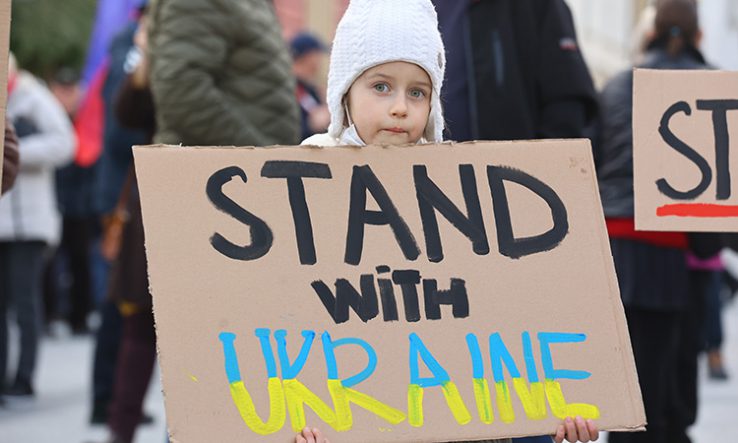
Image: European Union
Support must reflect the changing nature and understanding of the war, says conference summary
A report has underscored the need for Europe to provide long-term support for R&D in Ukraine, rather than short-lived help for academics who leave the country due to the Russian invasion.
Published this month, the report details the findings of a conference on the damage caused by the war, which was hosted in March by the International Science Council and the European Federation of Academies of Sciences and Humanities (Allea). Ukrainian organisations including the Ministry of Education and Science and the National Research Foundation were also involved.
The conference took place a year after the full-scale invasion began, and focused on how the research community outside Ukraine could best support the country.
“Speakers told of the appalling and indiscriminate damage inflicted upon Ukraine’s civilian infrastructure, its cultural, educational and research facilities, but also spoke of the resilient response of the Ukrainian scientific and academic community,” the report says.
Needs within Ukraine
The conference followed one that took place in June 2022, when the focus of support was on academics who had fled the war and were seeking refuge in Europe and elsewhere.
Since then, it has become clear that about 80 per cent of Ukraine’s researchers are thought to have remained in the country, meaning that there is an “urgent” need to support those who have stayed as well as the facilities and infrastructures in Ukraine.
“There remains an embattled but viable research community in Ukraine, which requires ongoing support to survive and reconstruct the local science ecosystem,” the report says.
It cites data from the ministry that 415 education institutions in Ukraine “have been destroyed completely” by Russia, with 3,145 having “suffered bombing and shelling”.
Continuity will be key to ensuring Ukraine has a viable R&D sector whenever the war ends, the report stresses. It says career interruptions will be “very hard to reverse”, and therefore opportunities must be presented to researchers at all career stages.
“The primary message is that, in this phase of the crisis, the most urgent need is to support the research system within Ukraine itself to avoid losing an entire generation of researchers,” the report concludes.
Broader themes
It recommends that such support could take the form of budgets and policies with both temporary and long-term bases, and says support programmes need to be “flexible enough to reflect the evolving situation”.
More broadly, the authors call for the support for Ukraine and its academic system to be repeated elsewhere.
“There is a need to reflect on possible ways to expand and apply lessons learned from funding models for Ukraine to other regions of the world,” they say.
Another theme conveyed is the need for “trusted international fora” for events like the conference the report summarises.
“Convening bodies must enable local voices to be heard, and they must be given a platform to ensure productive and respectful initiatives,” it says.